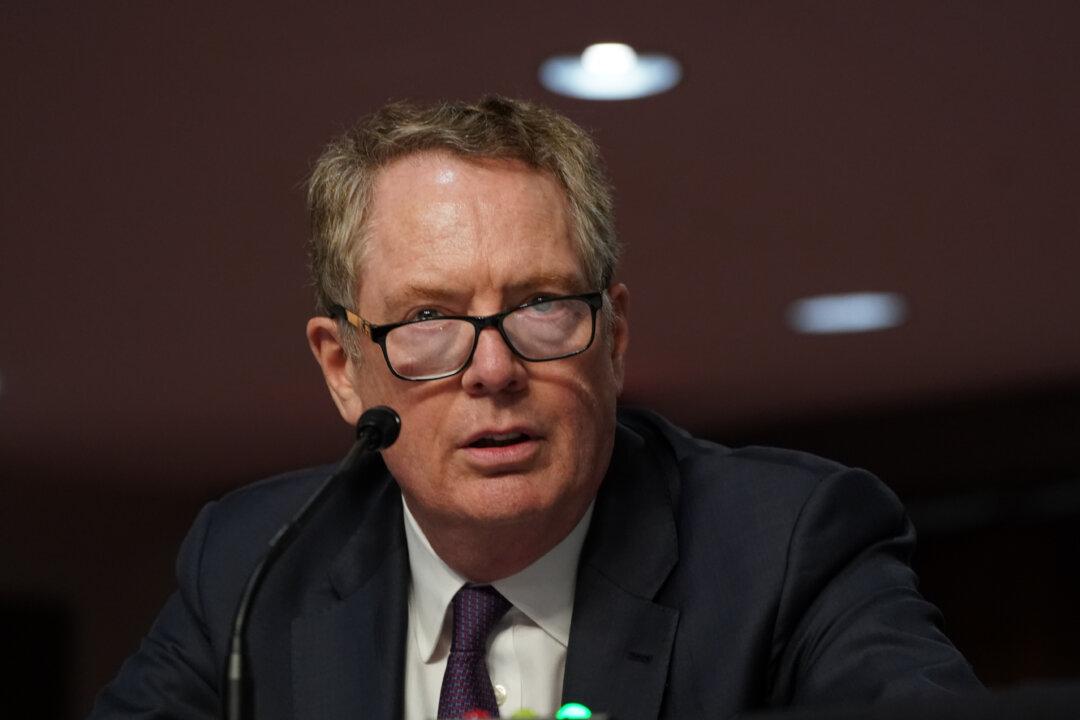U.S. Trade Representative Robert Lighthizer has urged the incoming Biden administration to keep tariffs on China, while crediting President Donald Trump for taking the regime in Beijing to task for its spate of unfair trade practices that have disadvantaged the United States.
“We transformed the way people think about trade, and we transformed the way the models are,” Lighthizer told The Wall Street Journal in an interview published on Jan. 11. “My hope is that that will continue.”





